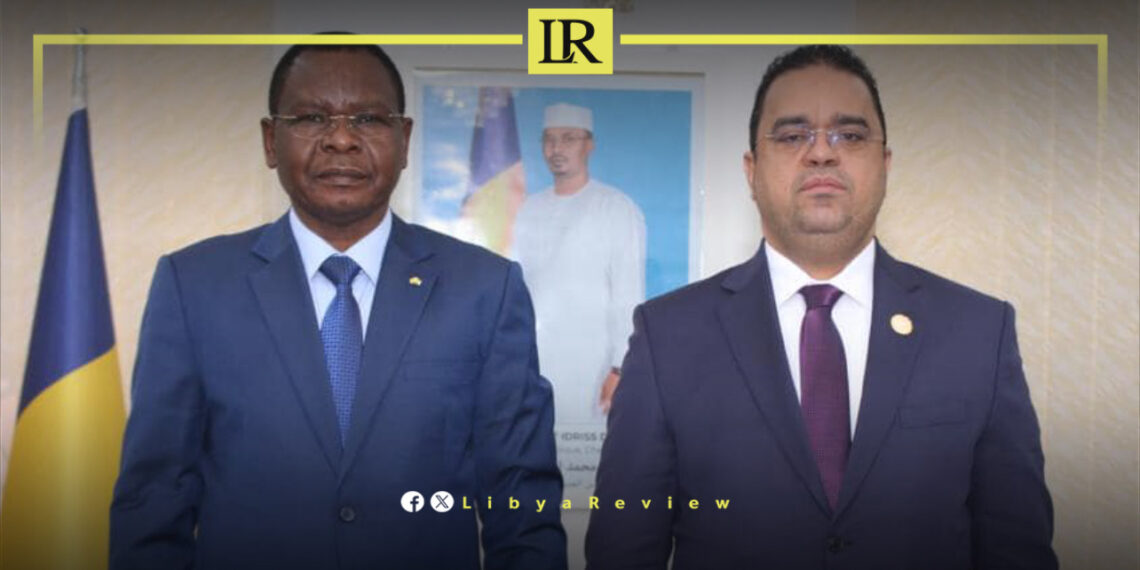Libya’s Minister of Labor and Rehabilitation in the Libyan Government of National Unity (GNU), Ali Al-Abed met with Chadian Prime Minister Allamaye Halina. They discussed ways to enhance bilateral cooperation, particularly in organising the labor market and activating joint efforts. This comes in light of the ongoing reciprocal visits between Libya and Chad at various levels.
The meeting was attended by Chad’s Minister of Public Service and Social Dialogue, Abdallah Amidou, advisor to the Libyan Minister of Labor and Rehabilitation, Juma Abu Owaina, the Labor Attaché at the Libyan Embassy in Chad, Salem Al-Baybi, and the Acting Chargé d’Affaires at the Chadian Embassy in Libya, Bashir Terbio.
This visit underscores the commitment to strengthening bilateral relations and intensifying cooperation across various sectors, contributing to the shared interests of both the Libyan and Chadian people.
Libya has been in chaos since a NATO-backed uprising toppled longtime leader Muammar Gaddafi in 2011. The county has for years been split between rival administrations.
Libya’s economy, heavily reliant on oil, has suffered due to the ongoing conflict. The instability has led to fluctuations in oil production and prices, impacting the global oil market and Libya’s economy.
The conflict has led to a significant humanitarian crisis in Libya, with thousands of people killed, and many more displaced. Migrants and refugees using Libya as a transit point to Europe have also faced dire conditions.
The planned elections for December 2021 were delayed due to disagreements over election laws and the eligibility of certain candidates. This delay has raised concerns about the feasibility of a peaceful political transition.
Despite the ceasefire, security remains a significant concern with sporadic fighting and the presence of mercenaries and foreign fighters. The unification of the military and the removal of foreign forces are crucial challenges.


